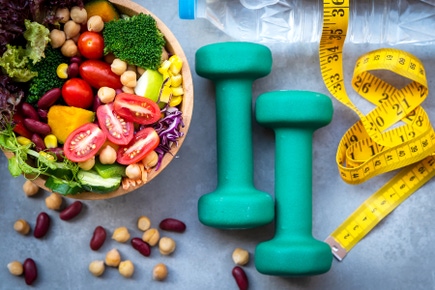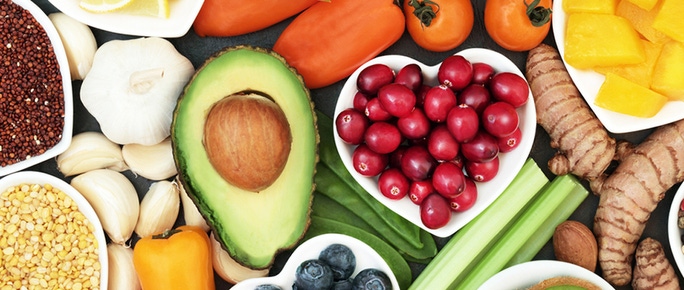.jpg?width=525&height=350&format=jpg&quality=95)
What foods are high in saturated fat?
It’s a common question regularly searched on Google - what are saturated fats, why are they ‘bad’ for us and what foods contain them? Let us explain.
What are saturated-fats?
First things first. Fat is essential for healthy bodies – it helps you absorb nutrients, makes healthy cells, and can reduce inflammation. The trick is in choosing the right types of fat to eat.
Saturated fats are fats that are solid at room temperature. Often saturated fats are found in animal products like meats, dairy foods including butter and cream, tropical oils such as coconut and palm, processed foods like cakes and biscuits, as well as fried foods.
Why should we avoid them?
Consuming too much saturated fat – often called ‘bad’ fat – can heighten your risk of heart disease by increasing the bad (LDL) cholesterol. Saturated fats may also increase your risk of heart disease.
A recent research review, found that saturated fatty acids – like high fat, processed meats and red meat – increased risk of cardiovascular disease (CVD). Replacing high fat products with plant-based proteins to reduce saturated fat intake therefore may have a role in reducing CVD risk.
If a food is high in saturated fats, it’s wise to watch how much of that food you eat – or swap for foods with healthier, unsaturated fats, like polyunsaturated or monounsaturated. For example, swapping butter for plant-based margarines and swapping oil for olive oil.
Easy fat swaps – from saturated to unsaturated:
1. Spreads
Butter is about 70% saturated fat and while a small amount in cooking is not cause for concern, it’s best to swap for an unsaturated choice for everyday use. Made from plants or seeds, margarine is a great substitute and can be used in cooking or as a spread.
Top tip: Try using alternative spreads like avocado or tahini on your toast, and cooking with olive or vegetable oil for a daily dose of healthy fats.
2. Oils
Despite what you may have heard, seed oils – such as canola, linseed and sunflower – are a superior option to coconut oil when it comes to saturated fat. Like olive oil – another excellent choice – seed oils are a good all-rounder that can be used for anything from baking to sauteing to drizzling on salads. They contain healthy, unsaturated fats that are good for your heart, lowering your risk of cardiovascular disease (CVD) and can increase good (HDL) cholesterol, while coconut oil is 92% saturated fat and appears to raise both our bad cholesterol (LDL) and our HDL. Even though the overall effect of coconut oil on our health is still to be determined, it raises risk factors associated with CVD such as bad cholesterol (LDL).
Top tip: Olive oil is a perfect all-rounder for almost anything – whether cooking with it, drizzling over salads, or even incorporating into bake goods, like this Cinnamon and Coconut Bread.
3. Dairy
As a guide, low-fat milks have about 1.5g of fat or less per 100ml and are lower in kilojoules and saturated fat compared to full-fat dairy, but still contain protein and calcium. Many non-dairy milks are also low in saturated fat and are cholesterol-free, including soy, oat and almond milk.
Top tip: Try swapping full-fat cheese or milks for light, skim or plant-based alternatives, and swapping fattier types of dairy like cream for yoghurt or low-fat ricotta.
4. Meat
Swapping fatty meats for leaner cuts or removing the visible fat off meat and skin off chicken is an easy solution for reducing saturated fat intake. Better yet - get your protein from healthy plant-based sources like legumes, nuts or tofu. These plant foods are naturally rich in nutrients like fibre, vitamins and minerals and are lower in saturated fat and kilojoules. They also provide a source of protein without the cholesterol typically associated with meat products.
Top tip: Pick a meal each week to make vegetarian using plant-protein such as lentils, beans or tofu, like this Bolognaise sauce. Pairing plant proteins with some wholegrains and vegetables makes a delicious, heart-healthy meal.
5. Snacks
Many store-bought snacks, muffins, chips or biscuits contain some level of saturated fat. A simple swap here is to snack on a handful of nuts, fruit or veggie sticks instead. Nuts contain healthy fats – both monounsaturated and polyunsaturated, and have been shown to help suppress hunger, regulate appetite, and help you to maintain a healthy weight.
Top tip: Make your own snacks, muffins or cakes where you can choose recipes with low saturated fat ingredients such as olive oil or vegetable oil like canola oil. You can still enjoy sweet treats, like these choc almond brookies containing olive oil, walnuts and almond milk.
Do you have a diet question? Or have you seen a nutrition study and wondered about what it means? We’d love to hear from you.
Contact our team of expert dietitians by using the free Ask a Dietitian service - online form here, or you can email or call on 1800 673 392.

The latest nutrition advice, plus health and wellness tips delivered to your inbox monthly

